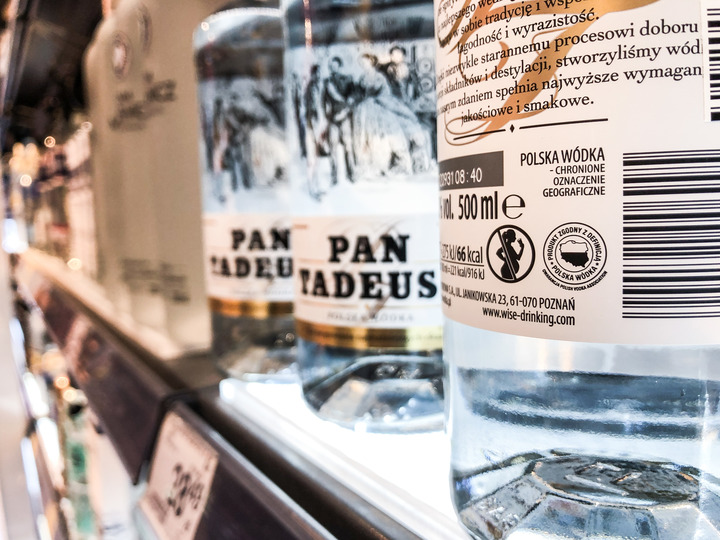BEIJING, March 24 (Xinhua) -- A group of trucks carrying 50 tonnes of yacai, a mustard green native to southwest China's Sichuan Province, headed to Shanghai - a million-yuan cargo on its way to Germany and a growing European market.
Sales are surging thanks to an ambitious geographical indication (GI) agreement between China and the European Union. The deal, which took effect on March 1, covers 100 GIs from each side, including wines, tea and agricultural produce such as yacai.
Zhou Yunong, manager of a Sichuan-based yacai producer, believes the China-EU deal will boost sales and expand markets.
A GI shows a product has a specific geographical origin and possesses qualities or a reputation due to that origin. It can be seen as a quality guarantee that distinguishes it from competitors.
"Our company's foreign markets were previously in the United States, Japan and some Southeast Asian countries. Since the genuine Chinese plant was listed in the Chinese GI products recognized by the EU, we have received more orders from Europe," said Zhang, who estimated his company's sales in the European market could exceed 20 million tonnes this year.
The largest category on the list is tea, with 28 landmark products from 11 Chinese provincial-level regions, accounting for 28 percent of the total protected products.
"The GI agreement indicates that the EU recognizes the quality, safety and health qualities of Chinese tea," said Mei Yu, secretary general of the China Tea Marketing Association.
GIs have proven to be a useful marketing tool. A study by the EU Commission in 2013 found a GI product sells on average at more than double the price of a similar non-GI product.
The list of EU products for the Chinese market includes champagne, feta, Irish whiskey and Parma ham.
The deal is seen a win for both parties. It will help EU consumers discover high-quality and genuine Chinese products, and meet the cosmopolitan tastes of China's growing middle class, who are willing to pay a little more to sample new flavors from the Europe.
The GI deal reflects China's commitment to strengthening intellectual property rights (IPR) protection and providing a sound business environment for foreign investors, said Zhang Zhicheng, head of the IPR protection department of the National Intellectual Property Administration (NIPA).
Since 2019, China has promulgated a series of laws, regulations and IP protection guidelines, including the Foreign Investment Law, to create a fairer and more transparent business environment.
The industry watchdog has also cracked down on IPR infringement and offered high-quality IP services for foreign enterprises.
The country's efficiency in processing patent applications is now world-class. In a 2020 report by the World Bank, China's business environment ranking surged to 31st globally from 46th in 2019.
The NIPA also attributed the deal to a well-established GI system. China had approved 2,394 GI products and had 6,127 GI trademarks registered by the end of February. More than 10,000 enterprises had received permissions to use GIs. The total output value of enterprises using GIs exceeded 600 billion yuan in 2020.
GI has also helped Chinese farmers battle poverty. Twenty-four demonstration areas of GI product protection were built, covering all major counties in the national poverty alleviation and development scheme.
For example, Sangzhi County, in Zhangjiajie city, Hunan Province, is known for its distinctive pillar-like peaks and precipitous cliffs that featured in the movie "Avatar". With a population of 470,000 and 28 ethnic groups, it was once home to some of the poorest areas in China. However, in recent years, the NIPA has made great efforts to help locals develop GI-based industries. Enterprises in the county have applied for registration of GIs and trademarks on tea, honey and vegetables, creating agricultural brands, setting up factories and increasing farmers' incomes.
China's efforts on IPR protection are recognized by its trading partners. Luis Castro Henriques, chairman and CEO of the Portuguese Trade and Investment Agency, said the China-EU agreement will enable Portuguese producers of GI wines and pears to look at the Chinese market more confidently.
"Their products will be protected by the competent local authorities against possible infractions of intellectual property and brand usurpation. They will also benefit from greater recognition of their products and their images, which will certainly help increase trade between the EU and China," he said.
Last year, China overtook the United States to become the EU's largest trading partner, with the bilateral trade volume reaching 649.5 billion U.S. dollars. EU imports from China grew by 5.6 percent year on year and exports by 2.2 percent.
More importantly, the trade relationship has strengthened amid the global economic slowdown caused by the COVID-19 pandemic.
"The signing of the China-EU Agreement on GI shows that economic and trade cooperation continued to advance without stagnation," said Cui Hongjian, director of the Department for European Studies at the China Institute of International Studies.
And in four years the scope of the landmark China-EU agreement will expand to cover another 175 GI names from both sides. Cui said it would result in reciprocal trade benefits and greater cooperation.
And the trend is growing, with China promoting bilateral GI cooperation with France, Thailand and Japan.
China will continue to participate in processes under the framework of the World Intellectual Property Organization, promoting the improvement of international rules, standards and related trade and investment, to make the global IPR governance system more just and equitable, the NIPA said. Enditem




 A single purchase
A single purchase









